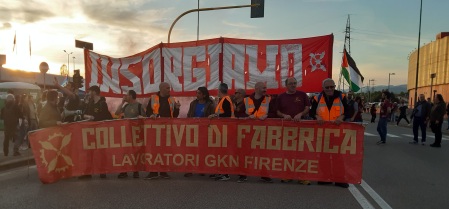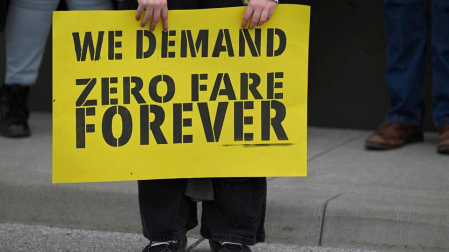By Hilary Horrocks
Five thousand people joined a march in Campi Bisenzio, near Florence, on Saturday evening 6 April, organised by the sacked workers at the huge GKN factory, who have been fighting for two-and-a-half years to keep their workplace open under public ownership and workers’ control.

The dispute and the occupation of the factory continues, since an Italian labour court ruled against the final attempt to dismiss the 400 GKN employees just before the deadline of 1 January this year. Now, though, the workers are not receiving any wages.
The demonstration at the weekend was called by the workers’ Collective in response to an attack on the occupied factory by the management, the most likely organisers of a break-in in the early hours of the morning last week to cut off electricity to the plant.
The Collective was set up in 2017. In July 2021 Melrose, the owners of GKN, announced that they planned to shut down the factory and sell it off to property developers. Since then, the Collective has become a nucleus for a campaign that has won wide support in the climate justice movement and in the community.
The ex-GKN Collective has argued forcefully and convincingly, with the participation of academic researchers, for a just transition away from the factory’s former role of turning out car axles, towards the production of socially useful items such as cargo bikes and solar panels, vital in the battle to save the climate.
Read the rest of this entry »


 Posted by peoplenature123
Posted by peoplenature123 







